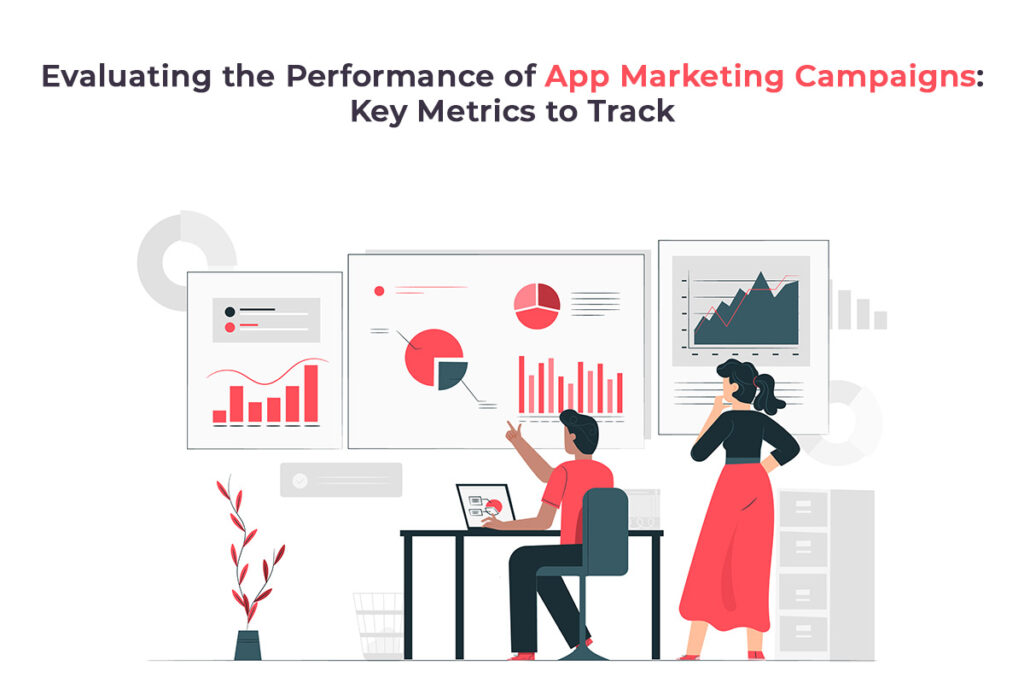
Evaluating the Performance of App Marketing Campaigns: Key Metrics to Track
In today’s digital landscape, where mobile apps have become an integral part of our daily lives, effective app marketing has become more crucial than ever. To ensure the success of your app and maximize its reach, it’s essential to evaluate the performance of your marketing campaigns regularly. Tracking key metrics allows you to gain valuable insights, make data-driven decisions, and optimize your marketing efforts. In this article, we will explore the key metrics to track when evaluating the performance of your app marketing campaigns.
App Downloads
The number of app downloads is often the first metric that comes to mind when evaluating app marketing campaigns. This metric indicates the initial level of interest and the effectiveness of your promotional efforts. Tracking app downloads helps you understand how well your marketing messages are resonating with your target audience and which channels are driving the most significant number of downloads.
User Acquisition Cost (UAC)
User Acquisition Cost is a critical metric that determines how much you spend on acquiring each new user. Calculating CAC involves dividing the total cost of your marketing campaigns by the number of new users acquired during a specific period. This metric helps you evaluate the efficiency and cost-effectiveness of your marketing efforts. By analyzing CAC, you can identify areas where you can optimize your marketing strategy to acquire users at a lower cost.
App Store Rankings
Monitoring your app’s rankings in the app stores is essential to assess its visibility and discoverability. Higher rankings can lead to increased organic downloads, while lower rankings may indicate a need for optimization. Keep a close eye on your app’s performance in app store search results and category rankings. By optimizing your app store listing, using relevant keywords, and encouraging positive reviews, you can improve your app’s visibility and boost its organic downloads.
Retention Rate
The retention rate is a crucial metric that measures the percentage of users who continue to use your app after the initial download. High retention rates are indicative of user satisfaction and engagement, while low retention rates signal potential issues that need to be addressed. Analyzing retention rates allows you to identify user behavior patterns, optimize user experience, and implement strategies to retain and engage your users for the long term.
Daily Active Users (DAU) and Monthly Active Users (MAU)
DAU and MAU metrics provide insights into the number of active users engaging with your app on a daily and monthly basis, respectively. These metrics help you understand the overall user engagement and popularity of your app. Monitoring DAU and MAU trends enables you to gauge the success of your app marketing campaigns over time and identify any fluctuations or growth patterns. By understanding user engagement, you can tailor your marketing strategies to increase user activity and maximize the app’s long-term success.
Conversion Rate
Conversion rate measures the percentage of users who complete a specific action you desire, such as making a purchase, subscribing to a service, or sharing the app with others. It reflects the effectiveness of your marketing efforts in driving user actions. By tracking conversion rates at various stages of the user journey, you can identify any bottlenecks or areas where users are dropping off. This information helps you optimize your app’s user experience, refine your marketing messages, and enhance conversion rates.
In addition to the metrics mentioned above, it’s important to establish clear objectives and key performance indicators (KPIs) specific to your app and marketing goals. This allows you to align your tracking efforts with your desired outcomes and measure success accurately.
Furthermore, leveraging analytics tools and platforms specifically designed for app performance evaluation can streamline the tracking process and provide in-depth insights into user behavior, campaign effectiveness, and overall app performance. Popular analytics platforms such as Google Analytics for Mobile Apps, Firebase, and App Annie offer robust tracking capabilities and advanced features to help you monitor and analyze app metrics effectively.
Remember that tracking metrics alone is not enough. It’s equally important to interpret and analyze the data collected to gain actionable insights. Regularly reviewing your app marketing campaign metrics and comparing them against your goals will enable you to identify strengths, weaknesses, and opportunities for improvement. Since app marketing is a dynamic field, it is essential to stay up to date with industry trends, user preferences, and technological advancements to ensure your marketing efforts remain effective. Continuously adapt, experiment, and iterate your strategies based on the insights gained from evaluating key metrics, and you’ll be on your way to building a successful and thriving app.
Conclusion
Evaluating the performance of your app marketing campaigns is crucial for the success and growth of your mobile application. By tracking key metrics like app downloads, user acquisition cost, app store rankings, retention rate, daily and monthly active users, and conversion rate, you gain valuable insights into the effectiveness of your marketing efforts. These metrics enable you to make data-driven decisions, optimize your marketing strategies, and drive sustainable growth for your app. Remember, effective app marketing is an ongoing process, and regular evaluation of key metrics is essential to adapt to market changes, meet user expectations, and stay ahead of the competition. By leveraging these metrics, you can refine your app marketing campaigns, improve user acquisition and retention, and ultimately achieve your app’s goals.
Please feel free to Contact Us in case you need any guidance regarding your app marketing needs.




0